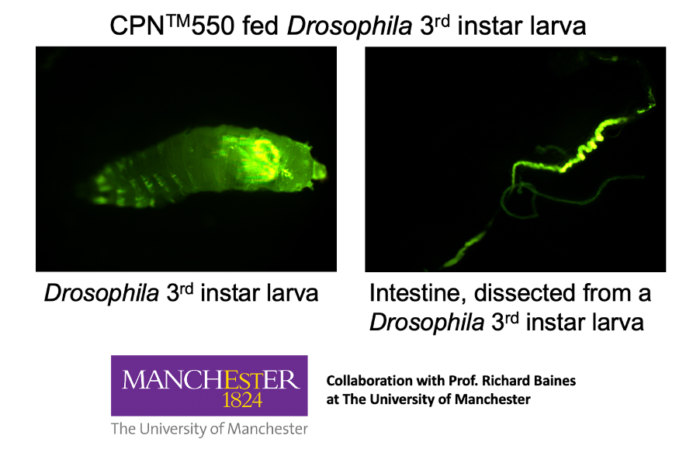In collaboration with the Fly Facility at the University of Manchester, Stream Bio is investigating the use of Conjugated Polymer Nanoparticles (CPNs™) in food intake studies in the model organism, Drosophila.
Preliminary experiments demonstrated that after feeding Drosophila larvae with CPNs™, the intense fluorescence of CPNs™ is visible in the intestine. This fluorescence can be quantified, giving an indication of the amount of food ingested. This has applications in drug delivery research, but also in nutrition studies, involving ageing, metabolism and disease, in which fluorescent labels provide a practical means of measuring food intake.

Experimental data from collaboration with Professor Richard Baines at the University of Manchester. Drosophila larvae were raised in a vial supplied with fly food mixed with 20% of CPN™ 550 (Yellow). Fluorescence of CPN™ 550 (Yellow) was observed in the intestine.
As a result of their stability and non-toxicity, CPNs™ offer benefits over the silver nanoparticles conventionally used in these types of studies. Silver nanoparticles have been found to be toxic in Drosophila, causing reduced survival and fertility. Thus, CPNs™ show potential to provide a safer alternative for nutrition and drug delivery studies.